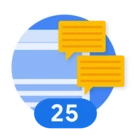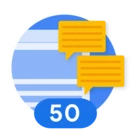Hi everyone,
I'm currently working on setting up some security monitoring for my Google App Engine-hosted website, and I'm looking to create a YARA rule in chronicle to detect users who are accessing the website. I'd like to monitor this activity for security and compliance purposes.
I tried various udm fields (target.) to find the users who accessing the website, But could'nt be able to find the correct UDM field.Could someone please provide guidance on how I can create an effective YARA rule to achieve this? Specifically, I'm looking to detect HTTPS/HTTP requests or any other relevant activity indicating user access to the website.
Any advice, examples, or resources would be greatly appreciated.
Thanks in advance!
Nikhil






